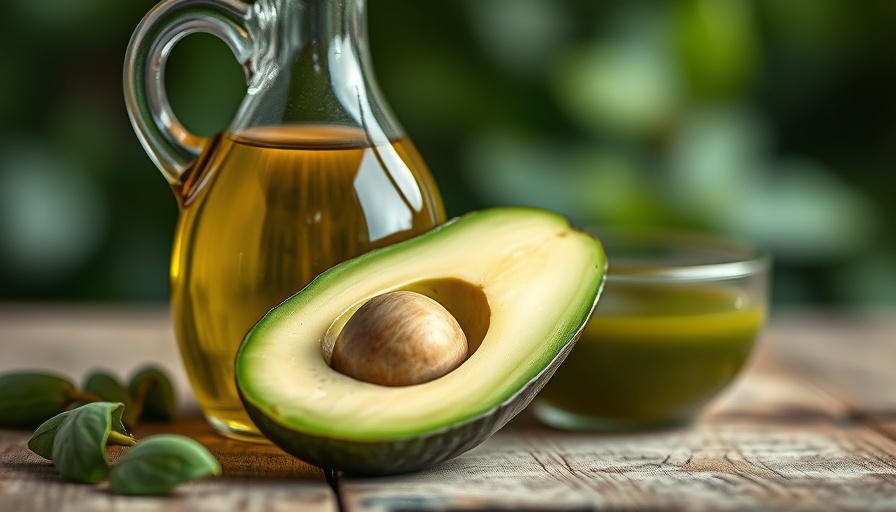
Understanding Avocado Oil: A Family Favorite
Avocado oil has become a household name, especially among families looking to make healthier cooking choices. It is rich in good fats, vitamins, and antioxidants, making avocados a perfect addition to everything from salads to main dishes. But with two types of avocado oil—refined and unrefined—it’s essential to understand which one best suits your family's needs.
The Basics: Refined vs. Unrefined Avocado Oil
Refined avocado oil undergoes a process of filtering and refining that removes much of its flavor and some nutrients, but gives it a higher smoke point. This makes it ideal for high-heat cooking methods like frying or grilling. Unrefined avocado oil, on the other hand, retains its natural flavor and nutrients, making it a better option for dressings or drizzling over finished dishes.
Health Benefits of Avocado Oil for Families
Both types of avocado oil come packed with health benefits. They contain monounsaturated fats, which are knows to promote heart health, improve cholesterol levels, and help in weight management—a crucial benefit for families aiming for healthier lifestyles. They are also rich in vitamins like E and K, contributing to overall wellness for both kids and parents.
Best Uses for Refined Avocado Oil
Refined avocado oil should be your go-to for sautéing vegetables, frying eggs, or preparing pancakes. Its high smoke point, around 520°F, ensures that it won’t break down and lose its nutritional value during cooking. Next time you're cooking breakfast for your family, consider using refined avocado oil for the perfect fluffy omelet!
When to Choose Unrefined Avocado Oil
Unrefined avocado oil shines when used in dishes that require a creamy texture or rich flavor. Think of your favorite guacamole recipe or a refreshing salad dressing. This oil can also be an integral part of a mindful eating experience, aligning perfectly with your family’s journey toward healthier eating habits.
Incorporating Avocado Oil into Family Meals
How can you introduce avocado oil into your family's meals? Try drizzling unrefined oil over roasted veggies, adding a splash to smoothies, or blending it into dips. It’s a fun way to get kids involved in cooking and experimenting with flavors! Additionally, explore cooking wellness programs that incorporate clean eating principles, promoting a collective family commitment to health.
Practical Tips for Storing Avocado Oil
Storage is vital to keep your avocado oil fresh. Store both refined and unrefined oil in a cool, dark place, such as a cupboard away from the stove. Remember to use the oil within 6 months after opening for maximum flavor and nutrition.
Conclusion: Make the Right Choice
With so many benefits befitting a healthy lifestyle, avocado oil is a valuable addition to your pantry. Whether you opt for refined for high-heat cooking or unrefined for its vibrant flavor in dressings, incorporating avocado oil into your family's meals aligns perfectly with a balanced and healthy way of living. Explore wellness resources that encourage healthy relationships with cooking and eating, making it easier for your family to thrive!
To learn more about creating an emotionally healthy environment for your family, incorporating practices of mindfulness, and exploring nutrition, check out community resources on wellness workshops and family fitness classes. Stay engaged, and enjoy this journey toward health together!
 Add Row
Add Row  Add
Add 




 Add Row
Add Row  Add
Add
Write A Comment